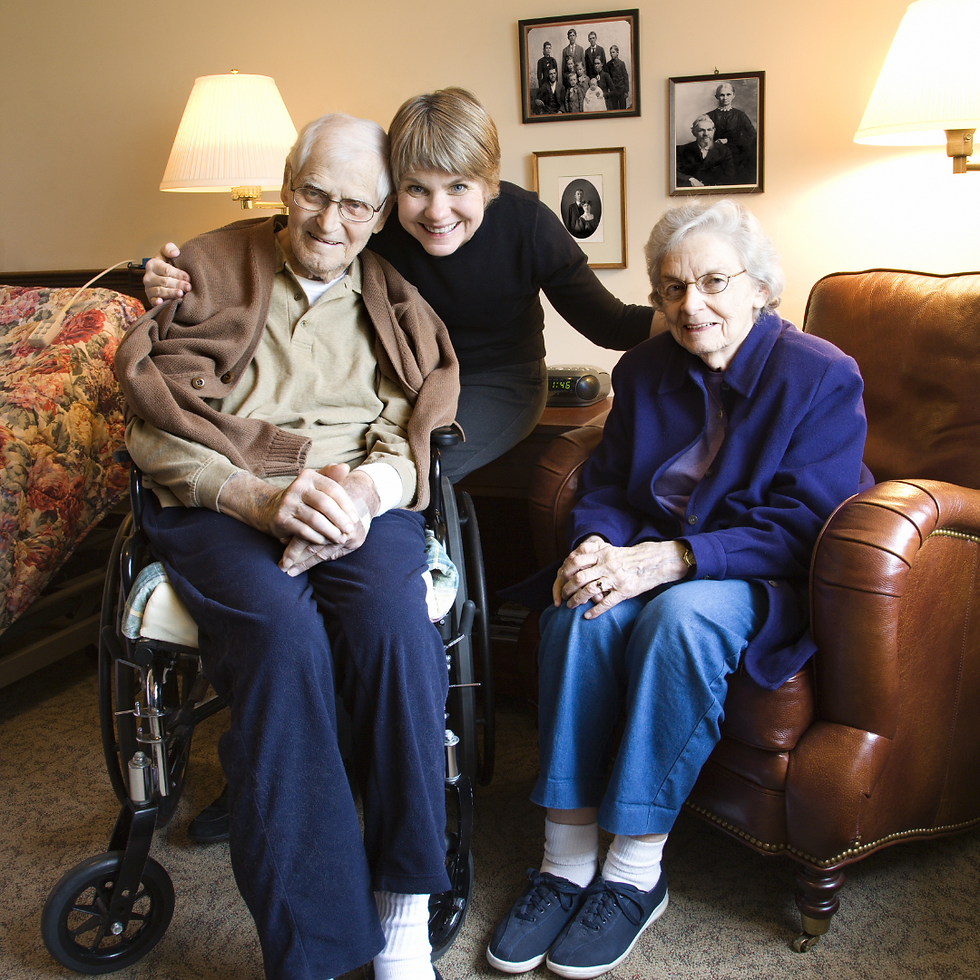During long weekends, holidays, religious celebrations, and family gatherings we are often seeing our elderly loved ones for the first time after some time has passed. Many caregivers are "long-distance caregivers" who may live an hour or more away, but who also provide physical, emotional, social, and financial support to their elderly parents.

Relying on regular phone calls and check-ins by family or friends who may live closer to aging loved ones can be challenging to truly monitor the individual's health and well-being. As we age, our health declines quite rapidly and many seniors may conceal or downplay any new or worsening health conditions. For most families, the holidays are the only opportunity to see first-hand the conditions their family member is living in and can assess their mental, emotional and physical health.
Signs to Look for During Holiday Visits
Weight Loss
Weight loss is one of the most obvious signs of ill health. Cancer, dementia, or depression are all possible causes. Also having low energy or fatigue can make it hard for seniors to prepare nutritious meals and clean up afterwards. In addition, an elder might think all this effort is unnecessary, especially if he or she lives alone. The taste of food can also change with certain medications and aging in general. Encourage your loved one to schedule a doctor's appointment if weight loss is evident.
Changes in Balance and Mobility Watch how your loved one walks and how they move. The inability to walk, changes in gait, or obvious pain during movement can be signs of joint, muscle, or neurological problems. Unsteady on their feet may put your loved one at risk of falling. Fall-related injuries like hip fractures are treated at emergency departments every year according to the Centers for Disease Control and Prevention (CDC). Consider pain management, physical therapy, in-home care, and mobility aids if you notice changes in a senior's mobility and coordination. Fear of falling can make seniors withdraw from daily activities both inside and outside the home if limited mobility isn't addressed. Elders who don't get enough activity can actually become frailer and more likely to fall.
Fluctuations in Mood and Behavior
Be on the lookout for changes in your loved one's mood, behaviour, and routine. It's hard to gauge someone's emotional state over the phone, even if you talk every day. To determine whether a loved one is staying active and getting valuable social interaction, it helps to have a general idea of what their usual schedule is like and the kinds of activities they enjoy. Do they still go to church on Sundays or see the hairdresser on Fridays? Are they still taking a nightly walk around the block or reading a good book? Symptoms of depression and anxiety include withdrawal from social activities, sleeping problems, losing interest in hobbies, and changes to basic home maintenance and hygiene. Those symptoms can indicate cognitive decline or other health problems like dehydration, which happens to elders a lot in the winter.
Changes in the Home Environment A senior's surroundings also need to be taken into consideration. Seeing clutter and stacks of unopened mail while visiting your loved one who's always been strict about tidying and paying bills on time could mean a problem. If you're visiting, take a walk through the house to see if it's up to their usual standards. You should be aware that sometimes problems are subtle. Having scorched cookware could mean your loved one forgot to take food off the stove or oven. They might not have the strength or desire to do laundry if their hamper overflows. If you see these signs, it's probably time to hire someone else to do your laundry and meal prep. Additionally, check the expiration dates on their prescriptions and over-the-counter medications and try to determine if they’re taking them as prescribed.
If you feel that your loved one is struggling with their physical or emotional health, consider having a conversation with them and suggest making an appointment with their health practitioner. This discussion may be a difficult one as many seniors deny that anything is wrong and work at "keeping up appearances", so be patient and continue the conversation at an appropriate time after they have calmed down. Let them know you are worried and are there for them.
If the situation has declined and further resources are required, consider seeking outside assistance from home care providers, such as Ideal Caregivers 4u, or get advice from local support groups who may have experience with the same concerns.
"Improving the quality of life for our clients since 1998 while providing peace of mind to their families."
#ottawahomecare #dementiahomecare #caregiving #aging #caregiversupport #respite #seniorcare #familyday #Hamilton #Hamiltonhomecare #Mississauga #elderlycare #seniorcare #homecare #elderly #healthcare #dementia #caregiver #memorycare #caregiving #seniorliving #care #homehealthcare #ottawa #health #caregivers #alzheimers #seniors #dementiacare #aging #family #retirement #covid #homehealth #caregiversupport #nursinghome #independentliving #elderlycaregiving #dementiaawareness

Comments